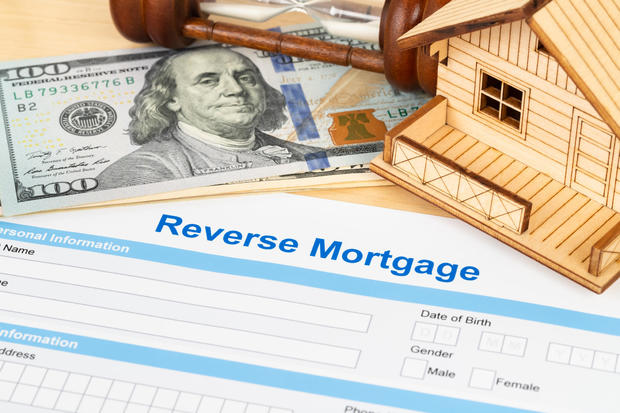When is a reverse mortgage the best home equity option? Experts weigh in
Inflation continues to strain the economy and American household budgets with higher prices at the gas pump, grocery store and other everyday purchases. As a result, many are taking on extra jobs and side hustles to make ends meet.
Along the same lines, many Americans are exploring alternative sources of income to cushion their finances. Homeowners, for example, may be able tap into their existing home equity to pay bills, fund a home renovation or cover a large unexpected expense.
One home equity option many older homeowners are considering is a reverse mortgage, which allows them to convert some of their home's equity into cash to pay down high-interest debt or improve their financial security during retirement.
As you might expect, a reverse mortgage differs from other home equity products like home equity loans and lines of credit (HELOCs). Below, we'll break down when a reverse mortgage can be a beneficial home equity option.
See how much home equity you can access with a reverse mortgage here now.
When is a reverse mortgage the best home equity option?
Here's when this may be the best home equity choice for you, according to the experts we spoke to.
When you're a senior and eligible
A reverse mortgage can be an excellent option for seniors to unlock their home equity and supplement their retirement income. As Sarah Alvarez, vice president of Mortgage Banking at William Raveis Mortgage, notes, "the number one reason borrowers get a reverse mortgage is because there is no monthly mortgage payment until the borrower no longer occupies the home as their principal residence."
Among other reverse mortgage eligibility requirements, you must be at least 62 years old, own a single-family home or other eligible property and live in the home as your primary residence. You also must have at least 50% equity in your home and must be able to afford ongoing property taxes, maintenance and other house-related expenses.
But if you qualify, a reverse mortgage may be more beneficial than other home equity products, depending on your situation. "If you are already retired and no longer have a regular income, a reverse mortgage would be best, as there are no income requirements or monthly payments necessary," says Rebecca Awram, a mortgage advisor at Axiom Mortgage Solutions and Seniors Lending Centre. "However, the closing costs and fees may be higher than those of an HELOC."
Explore your top reverse mortgage lenders here now.
When you don't plan to leave your home to heirs
A reverse mortgage might be worth it if you don't have beneficiaries who stand to inherit your home. That's because reverse mortgages are paid off once you sell the home, which often happens after you die. Keep in mind, your heirs aren't responsible for the debt. However, if they want to sell the home, they must pay off the reverse mortgage first and before receiving any remaining proceeds.
"If you don't plan to leave your house to heirs, or if you don't have any heirs at all, a reverse mortgage can be a practical solution if you're 62 or older and need cash," notes Eric Croak, CFP and president at Croak Capital. "It allows you to utilize the equity in your home, and there's no reason not to enjoy the value you've built up in your property."
When you want to live in your house long term
A recent Redfin survey revealed that 78% of older American homeowners are committed to staying in current homes. If you plan on staying put in your home as you grow older, a reverse mortgage can help you tap into your home equity for supplemental cash in retirement.
On the other hand, taking out a reverse mortgage makes little sense if you plan to move in the near future. Remember, you must repay a reverse mortgage once you move out of your home so a near-term move means you'd have little time to enjoy the benefits of the reverse mortgage before you have to pay it back.
When you get a reverse mortgage, you can typically qualify to receive around 40% to 60% of your home's appreciated value, which may not last indefinitely. "If you take out a reverse mortgage hoping to have income from your home equity for the rest of your life, consider that you don't know how long you will live," Croak notes. "If you outlive your mortgage, the upside is that you don't have to leave your home, even though you stop receiving payments from the lender. The downside is you'll still have all the costs of owning a home, plus your other living expenses and bills. This could mean you might have to sell the home and get whatever money you can from it."
The bottom line
While reverse mortgages can be a wise option to increase your financial security in retirement, they're not without drawbacks. Consider your financial situation and long-term goals carefully before proceeding. For example, you might not opt for a reverse mortgage if you'd struggle keeping up property taxes, homeowners association and other homeownership costs. If you can't, If you don't, or if you move out of the home for 12 months or longer, you may have to repay the reverse mortgage.
"When it is determined that the borrower no longer occupies the home as their principal residence, what is borrowed plus interest is due to the lender," says Alvarez. "This is a complex product, and it is important to make sure you fully understand the implications, but it can be a great solution to help someone remain in their home."




